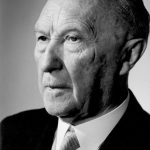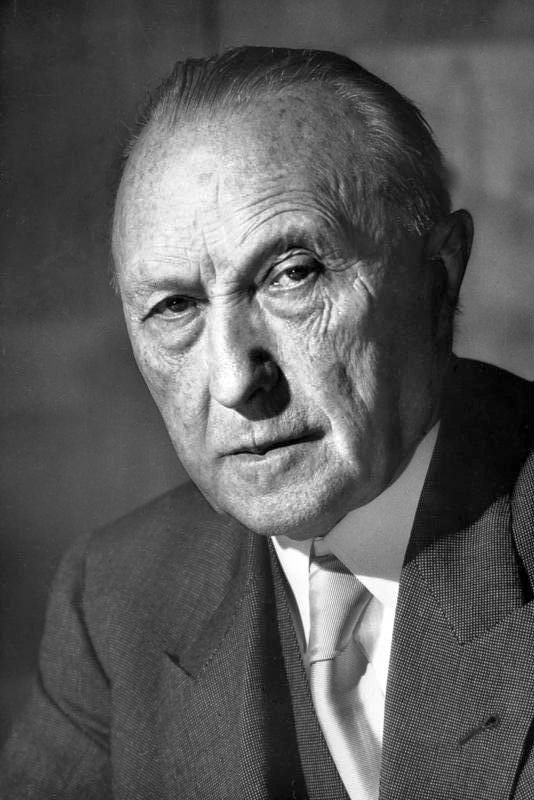
Konrad Adenauer was a prominent figure in German politics and a visionary leader who played a crucial role in shaping the post-World War II era. Serving as the first Chancellor of the Federal Republic of Germany from 1949 to 1963, Adenauer’s leadership and policies transformed Germany into a stable and prosperous nation. This article delves into the life, achievements, and impact of Konrad Adenauer, highlighting his key contributions to German history.
Konrad Hermann Joseph Adenauer was born on January 5, 1876, in Cologne, Germany. He came from a Catholic family and pursued a legal career, specializing in administrative law. Adenauer’s political career began in the early 1900s when he joined the Catholic Center Party, which aimed to protect the interests of Catholics in the predominantly Protestant country.
Adenauer’s rise to power came after the end of World War II when Germany was divided into four occupation zones. In 1945, he was elected as the Mayor of Cologne, where he successfully rebuilt the city and gained recognition for his administrative abilities. Adenauer’s competence and reputation led to his election as the President of the Parliamentary Council, which drafted the constitution of the new Federal Republic of Germany.
In 1949, Adenauer became the first Chancellor of West Germany, a position he held for 14 years. Adenauer’s tenure as Chancellor coincided with the era of the “economic miracle” or Wirtschaftswunder, a period of rapid economic growth and recovery. He implemented market-oriented policies, encouraged foreign investment, and fostered trade partnerships, which significantly contributed to the country’s recovery from the devastation of the war.
One of Adenauer’s most significant achievements was his unwavering commitment to integrating West Germany into the Western world. He played a pivotal role in establishing diplomatic relations with Western nations, particularly with France, which resulted in the signing of the Elysée Treaty in 1963, solidifying the Franco-German reconciliation. Adenauer was also instrumental in Germany’s entry into NATO and the European Economic Community (EEC), the precursor to the European Union.
Adenauer’s domestic policies aimed to consolidate democracy and promote stability within West Germany. He emphasized the rule of law, supported a free-market economy, and promoted social welfare reforms. Adenauer’s policies also focused on reconciliation, addressing the atrocities committed during the Nazi regime. He initiated compensation programs for Holocaust survivors and recognized the responsibility of the German state for the crimes committed during the war.
Konrad Adenauer’s legacy is indelibly imprinted on German history. His leadership and vision helped Germany regain its position as a respected member of the international community. Adenauer’s commitment to democracy, economic prosperity, and European integration laid the foundation for Germany’s subsequent success and its role as a key player in European politics.
Konrad Adenauer’s contributions as a statesman, diplomat, and leader continue to inspire generations. Through his visionary policies, Adenauer transformed a war-torn Germany into a thriving democratic nation and laid the groundwork for the country’s future success. His commitment to reconciliation, economic development, and European integration shaped Germany’s identity and its place on the global stage. Konrad Adenauer will always be remembered as a father figure of the New Germany and a champion of peace and prosperity



















Add Comment